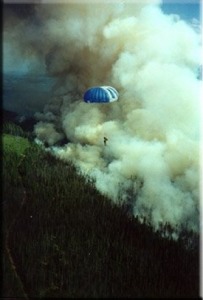Our rural location near the Canada-U.S. border was ideal for Simon, in fact for anyone hoping to avoid notice by the authorities. The local police rarely made even a token appearance on Defehr Rd. We were a clean living, hard working, law abiding lot. Grant, a loner renting the adjacent 5 acres, almost at the end of the road, was not a problem for neighbours.
On a sunny afternoon in early spring, I saw a stranger outside at Grant’s place and went over and introduced myself.
His name was Simon. I guessed he was nearing 30, although a mildly receding hairline may have added a few years to his appearance. His blue eyes were exceptionally vigilant and I sensed he was carefully assessing me. For the next 2 weeks, we talked at length several times. His quick mind looked at things from unusual angles.
There was one puzzling aspect to him. For reasons I did not yet understand, he invariably turned aside personal questions. In spite of this, he was an interesting, engaging conversationalist.
After about two weeks, he disappeared as quietly as he had come.“He ran into a little trouble a while ago,” Grant told me. “They put him in Matsqui Institution.” From experience with the prison I knew “a little trouble” didn’t land anyone in Matsqui.
Disappointed at this news, I wrote Simon a note asking him to put me on his visitors list. He agreed and I learned that the “little trouble” Grant had mentioned was a parole violation. He was doing time for possession and trafficking of heroin. Prisons had been home for him much of his adult life.
Being confined behind the double fences along Matsqui’s perimeter, Simon could no longer hide his past from me. Still, he spoke of his life only reluctantly. I sensed confusion and despair within him, as though there was an inner conflict between the reality of his dreary circumstances and the more positive vision he was trying to nurture and project.
“I’m done with heroin,” he said. “I have a few friends here who want to stay clean. They’re the only ones from inside I’ll see when I get out.” I’d heard similar words from others, but certainly if Simon could avoid the lure of drugs and quick money, he might have the determination and character to stay clean.
When he was released from Matsqui, he again disappeared. Two years later he called from Revelstoke. “I’m staying clean,” he said. “Everything is good. I came here to get away from the street.”

Accustomed to taking risks, Simon had become an elite fire fighter, parachuting into rugged terrain to extinguish small blazes.
“This might surprise you,” he said with a note of satisfaction, “I’m married now. We’ve got a kid.”
After that Simon drew a veil over his life for 25 years. A proud man, he hoped to release himself from the tentacles of his tainted history. For him, this apparently meant leaving people behind.
***
We had moved twice, and I had retired when the phone rang one dark October day. Clouds were threatening a deluge.
“Hi, this is Simon,” a subdued voice said. “I’m in Abbotsford. Can I come over?” It was a delight to know my friend was still alive.
I watched through the living room window as he pulled into our driveway in a near new blue chevy pickup, a cigarette dangling from the corner of his mouth. Same old Simon, I thought. But I was to learn that some things had changed. Much of the earlier swagger had fallen away and he needed to talk. Lowering himself into the chesterfield, the expression on his deeply tanned face remained sombre.
He began to talk and I felt that he was picking up part way through a conversation that had been bedeviling his mind for some time. “Like I told you on the phone when we talked a while ago,” he began, “I got married and we had a kid. The woman I married is a paralegal. Everything was great. I liked my job.” His serious tone and downcast expression suggested a desperate despair somewhere in the hidden depth of his soul. Uncharacteristically, he made no attempt to conceal his inner turmoil. This puzzled me. In the past he had hidden behind a mask that allowed no one to glimplse the demons tormenting him.
“Between my wife and myself, we were making decent money,” he said. “We had holidays in Mexico and a home with a pool. She liked to spend money, and I wanted to please her.”
He was distracted by the laughter of children on the street. When he rose from the couch, I realized he had lost much of the robust strength of earlier years. From my vantage point, I could see the pre-school age children, a boy and a girl running ahead of their mother. She was a pretty young woman with black hair, smiling at her children’s antics. The children saw Simon and waved enthusiastically, as though he was a dear friend. He waved too, and lingered at the window, watching them.
“She’s a lucky woman,” he said. “I hope the kids have a dad.”
His spirits seemed to have been momentarily lifted by their attention. He turned to face me and pushed a hand through his greying hair. There was considerably less of it than I remembered. His mind was still reflecting on the woman and her children. “All the years in jail before I met Tanya,” he said, “a family is what I really wanted.” It was the first time he had mentioned his wife’s name.
His hand rose to the pack of cigarettes showing in the breast pocket of his shirt. Seeming to remember he was in a home, he let it drop again.
“A few years ago I went to see a doctor,” he said, as though in his mind the conversation had not been interrupted. “Pain in my chest.” His voice slipped almost to a whisper. “After the tests, he told me I had lung cancer.”
Apparently thinking I must be wondering why he still smoked he said, “I should have quit years ago. It’s going to kill me. I’ll probably lose my right lung first.” He paused and looked down. “The chemo and radiation put it in remission.”
He checked the time on his wrist watch. “I need to go soon,“ he said. But he made no move to leave. I remained silent. “After I got the diagnoses, my wife divorced me. Her friend told me later she’d been working on it 3 years. By conniving she managed to get the house and everything except my pickup truck.” His hand reached for the pack of smokes again but once more he dropped it.
“It wasn’t all her fault,“ he said, “I made some mistakes. The last few years it’s been all down hill.”
He had been stripped of family, home and health. His existence was in a state of shambles and despair, but Simon wasn’t a quitter. He possessed an inner resolve to start over and rebuild his life. He rented a room in Abbotsford, not far from where Linda and I lived. Because his health no longer permitted him to do physical work, he began delivering pizzas. Even in this his luck continued to spiral downward. He sold the truck, which he prized, so he could buy a car.
In a moment of inattention, Simon rear ended a vehicle, totaling his car. Not having insurance, he had no choice but to buy another car with the small amount of money remaining from the sale of his truck. Shortly after, he damaged the second car. Still without insurance, he accepted a loan from me to repair the car. Once again he resumed delivering pizzas. Sometimes late at night, a few undelivered pizzas remained. He looked for street people who were eager to receive them.
Although Simon had never been appreciated or treated well at home, when he learned his 91 year old father was seriously ill, he drove into Vancouver many times to visit and help. During this time, while his father was living out his final days, Simon’s own health was again deteriorating.

One day I received a call from him. “Hi, this is Simon,” he said. “I’m in the Vancouver General. I’m going to lose a lung.” Conversation was difficult for him and he seemed to feel he had told me what I needed to know.
Several weeks after the operation, he called again and Linda and I went to visit him at the VGH. Sitting on the edge of his bed, he appeared weak, pale and very thin, scarcely a shadow of the Simon we had known. It was a brief visit, our last with him. When I spoke with him by phone a week later, he was waiting for a doctor to see him. Breathing had become difficult.
“Simon,” I said, “have you made peace with your Maker?”
“Yes,” he said, “I have.”
It was our last contact with him. Not long afterward, a brief obituary in the Vancouver Sun confirmed he had passed away. He had never been able to exorcise his demons or to completely trust those closest to him. But Simon had been a special friend. Even now, Linda and I miss him.
